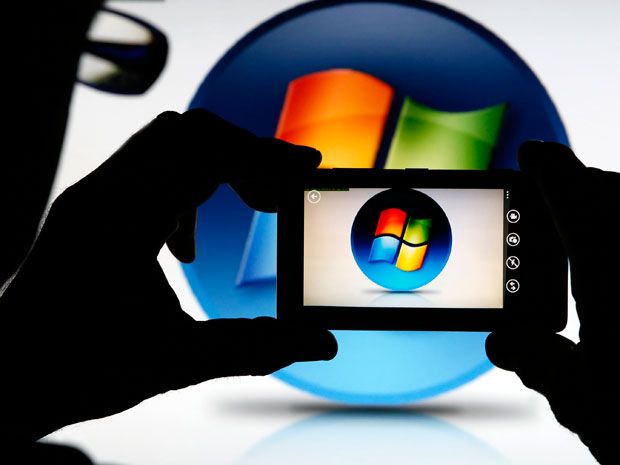Microsoft's Nokia Deal Faces Skepticism from Smartphone Analysts
Microsoft's $7.2 billion deal for Nokia's handset business aims to boost its smartphone market share
Microsoft has made its biggest bid yet for smartphone market share by purchasing Nokia's handset business for US $7.2 billion. The deal will allow Microsoft to join competitors Google and Apple as smartphone software makers that create their own hardware. But tech experts remain skeptical of whether Microsoft can seriously expand its toehold in the smartphone market.
Smartphones running Microsoft's Windows Phone software have taken a very distant third in sales, trailing behind phones using either Apple's iOS (17 percent) or Google's dominant Android operating system (75 percent). Microsoft hopes the Nokia deal will allow it to leap from its current 3-percent share of the smartphone market to about 15 percent by 2018, according to the Wall Street Journal.
The future of Microsoft may depend on its ability to become a serious player in the mobile devices market. But media reports and analysts took a generally skeptical view of Microsoft's future prospects (PC World ran the headline: "The Microsoft-Nokia deal: Fail plus fail equals more fail"). Microsoft stock also fell 4.6 percent on Tuesday in response to news of the deal.
"Historically, I've always seen Microsoft as the place where mobile technology goes to die," said Michael Morgan, a mobile industry analyst with ABI Research Inc., in a Wall Street Journal interview.
Microsoft's history of trouble in attracting software developers to make Windows Phone apps and its "glacier-like" pace of development will weigh heavily on its chances of challenging Google and Apple, analysts told the Wall Street Journal. The company faces a "chicken or the egg" dilemma of needing developers to expand market share, but also needing bigger market share to attract developers.
Microsoft's and Nokia's fates—at least as far as the smartphone business is concerned—had already become intertwined even before the deal went down. Nokia designs more than 80 percent of Windows smartphones. The Wall Street Journal described the deal as a necessary step for both companies if either one wanted to stay competitive in the smartphone market, because Nokia had been struggling to stay in the game without more financial backing.
Steve Ballmer, Microsoft's outgoing CEO, initiated talks with Nokia because he wanted Microsoft to have its own branded phone, Bloomberg News reports. Both companies also acknowledged that their two-year collaboration on smartphone development had failed to deliver the results they wanted.
On the positive side for Microsoft is its $77 billion war chest and the fact that it continues to earn more than $70 billion in annual revenue. Ownership of Nokia's handset business could also give Microsoft an edge in convincing owners of basic feature phones to trade up for a fancier Windows Phone, according to the New York Times. (Nokia still does brisk business in basic feature phones, selling 55 million each quarter.)
Microsoft may yet prove both critics and skeptics wrong by transforming itself into a serious smartphone player.
But the deal clearly spells bad news for BlackBerry, which has struggled to maintain mobile device market share in the face of Google and Apple's success. "BlackBerry always looked small fry,” said Nick Spencer, the senior practice director for ABI Research in London, in a New York Times interview. “Now they look even more small fry. They’re up against three of the biggest companies in the world.”
Photo: Dado Ruvic/Reuters
Jeremy Hsu has been working as a science and technology journalist in New York City since 2008. He has written on subjects as diverse as supercomputing and wearable electronics for IEEE Spectrum. When he’s not trying to wrap his head around the latest quantum computing news for Spectrum, he also contributes to a variety of publications such as Scientific American, Discover, Popular Science, and others. He is a graduate of New York University’s Science, Health & Environmental Reporting Program.
